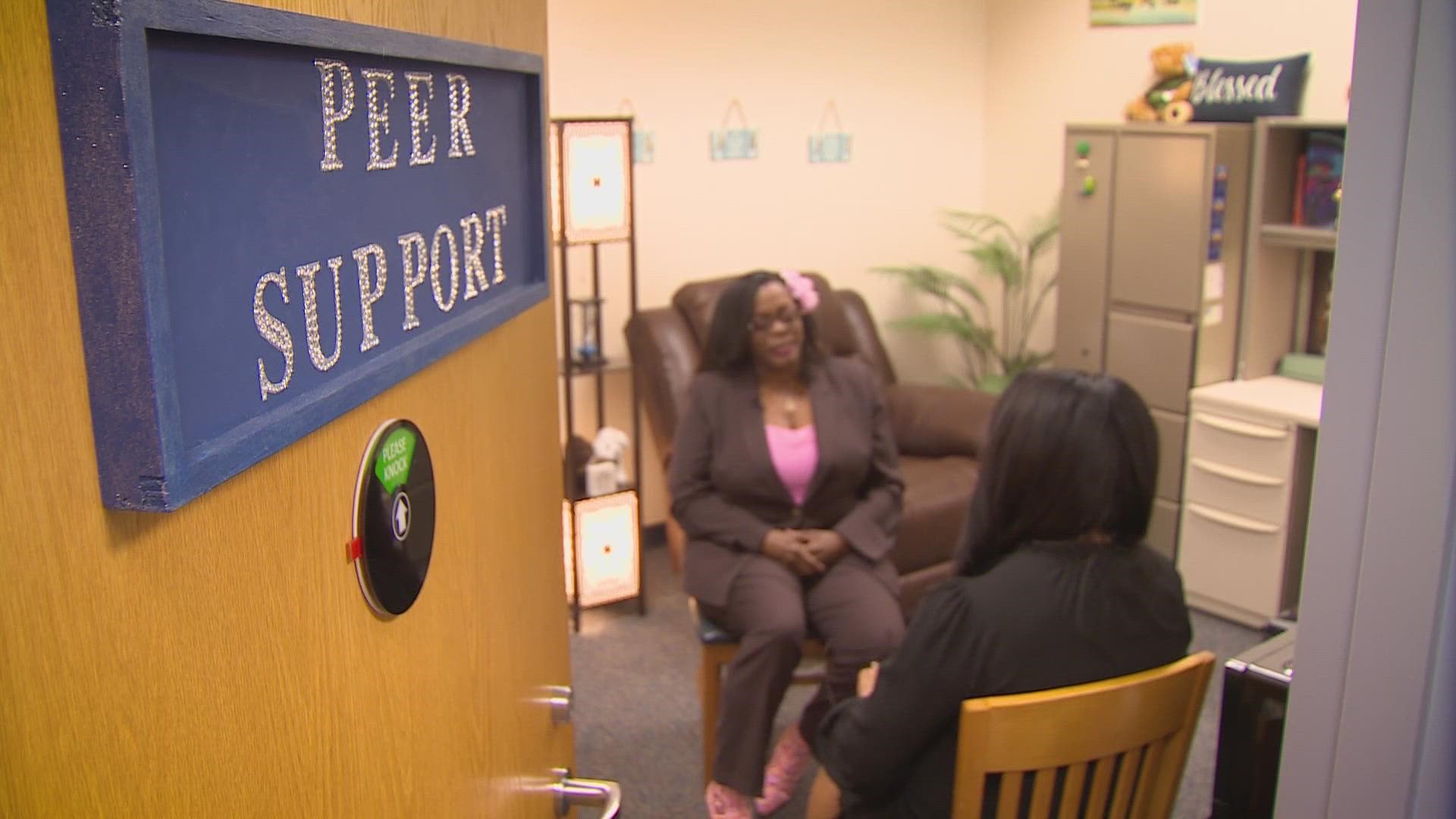DALLAS — After the bullets fly and the crime scenes are cleared, there is the aftermath to deal with.
“Once everything is over and you come home and you sit down and you’re at home with your family or yourself, here comes the mind. Here are the thoughts and the what-ifs,” said D.D. Mathis-Thornton.
Oftentimes, police officers are faced with life-or-death situations.
In a recent case, Dallas Police released video of officers being shot at and you can hear one of the officers repeatedly tell the suspect to drop his weapon, but he fires at officers instead.
On body camera footage, you can hear the fear in a female officer voice as she screams when the suspect opens fire.
Mathis-Thornton understands that fear. She’s been a police officer for 31 years, but is also a licensed counselor.
She wanted to work with fellow officers struggling to deal with what they see every day.
”The impact of that – the emotional impact of that can weigh heavy on you, especially if you’ve done this for an extended period of time,” said Mathis-Thornton.
Most recently, Dallas and Carrollton lost officers in car crashes leaving their departments and colleagues grieving.
Mathis-Thornton keeps an hour glass on her desk as a reminder that life is short but also that it’s just a matter of time before all of the tragedy and violence officers see catches up to them.
”The brain is not built to house this much trauma,” said Mathis-Thornton.
She said suicide, alcoholism and divorce are high among officers, and that she believes it’s because for years they were told to be tough.
”If you showed signs of weakness you colleagues would frown upon you.”
She says that’s why DPD has expanded its mental wellness unit, implemented a new plan that gives officers struggling with alcohol 30 days off to get treatment and encourages officers to get help.
On the say we interviewed Mathis-Thornton, she was supposed to retire but says she had unfinished business and just couldn’t bring herself to leave.

